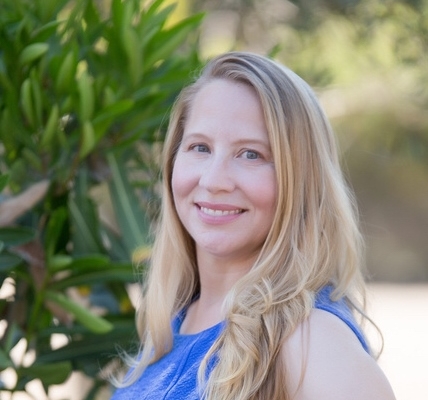WomensHistoryReads interview: Jennifer Laam
One of the most delightful perks of authordom is getting a sneak peek at upcoming books -- when there's a potential big overlap between your readership and the readership of a new book, getting asked to read for a blurb is a great honor. When it helps you discover a book you didn't know you'd love, it's a joy. So it was when I got to read Jennifer Laam's latest novel, The Lost Season of Love and Snow, before its recent release. Now it's out for the world to read and enjoy! And I knew when I decided to put together the #WomensHistoryReads interview series that Jennifer's take on Natalya Goncharova needed to be on the list. Here's our Q&Q&Q&A.
Jennifer Laam
Greer: How would you describe what you write?
Jennifer: I write historical fiction with strong romantic elements. I love bringing two characters together and depicting passionate physical, emotional, and intellectual connections between them. At the same time, I explore both the world of the past and the continuing allure of certain historical figures and events. My first two books – The Secret Daughter of the Tsar and The Tsarina’s Legacy – feature plot lines set in both the past and present. In those books, modern-day characters are drawn to the tragic last Romanovs and Catherine the Great respectively. My recent novel The Lost Season of Love and Snow is a more traditional work of historical fiction in that it is set exclusively in the past and focuses on one character: Natalya Goncharova, the notorious wife of celebrated poet Alexander Pushkin.
In my view, Natalya’s personal history was too often eclipsed by a tiresome trope and she was depicted as the seductive woman who brought down a great man. I focused on aspects of her life that might resonate with contemporary readers, such as her uncomfortable interactions with the tsar, a man with complete power over her. In this way, even in a traditional historical fiction format, I could continue to investigate the deep associations between past and present.
Greer: Do you consider yourself a historian?
Jennifer: I do! Academic history and fiction intersect at points where we piece together the truth of a woman’s life, often using resources other than firsthand narratives. My master’s thesis consisted of biographical work on three early American women. The research process for that project informed my approach to The Lost Season of Love and Snow. I wanted to recover and recreate Natalya’s experiences in her marriage to Alexander Pushkin while still maintaining a twenty-first century feminist perspective. Having said that, I embrace the opportunity afforded me as a novelist to take educated guesses regarding women’s perceptions of their own lives. I try to flesh that out to create complex characters who can help provide insight into issues that still haunt us, such as sexual harassment.
Greer: It's amazing how far we've come and how far we haven't. More of a curveball for your last question: What book, movie or TV show would your readers probably be surprised to find out you love?
Jennifer: I’m not sure if this is a surprise, but I’ve seen every episode of "Star Trek: The Next Generation" and know way too many stretches of dialogue by heart. I love science fiction almost as much as I love historical. Both genres lend themselves to allegory and commentary on current politics and events. I think the distance of both past and future settings makes it more likely a writer can change hearts and minds. A reader or viewer with a particular political perspective in relation to the present might have greater sympathy for different points of view through these genres. Make it so.
Greer: Yes! Not to give too much away in advance, but I was surprised by how many of the historical fiction authors I asked this question responded with love for sci-fi shows. There's a definite pattern.
Jennifer: And a question for you -- What initially drew you to your heroine Kate Warne, the first female detective at the Pinkerton Agency?
Greer: The idea that she was such an early pioneer grabbed me immediately -- she was hired in 1856, before the Civil War, in a time when it was unusual for a woman to work outside the home at all, let alone in such a dangerous profession. Then it intrigued me that I'd never heard her name before. If we know the name of the man who assassinated Lincoln, why not the name of the woman who saved him from an earlier attempted assassination? While on tour for GIRL IN DISGUISE, I told everyone I was on a Kate Warne Awareness campaign. I want her name to be known.
Want to know more about Jennifer and her books? Check out the links below:
Twitter: twitter.com/JenLaam
Facebook: facebook.com/jenniferlaam.writer
Instagram: instagram.com/jenlaam
Book: bit.ly/lostseasonofloveandsnow
Website: jenniferlaam.com
(And, of course, stay tuned for the next #WomensHistoryReads installment tomorrow.)

